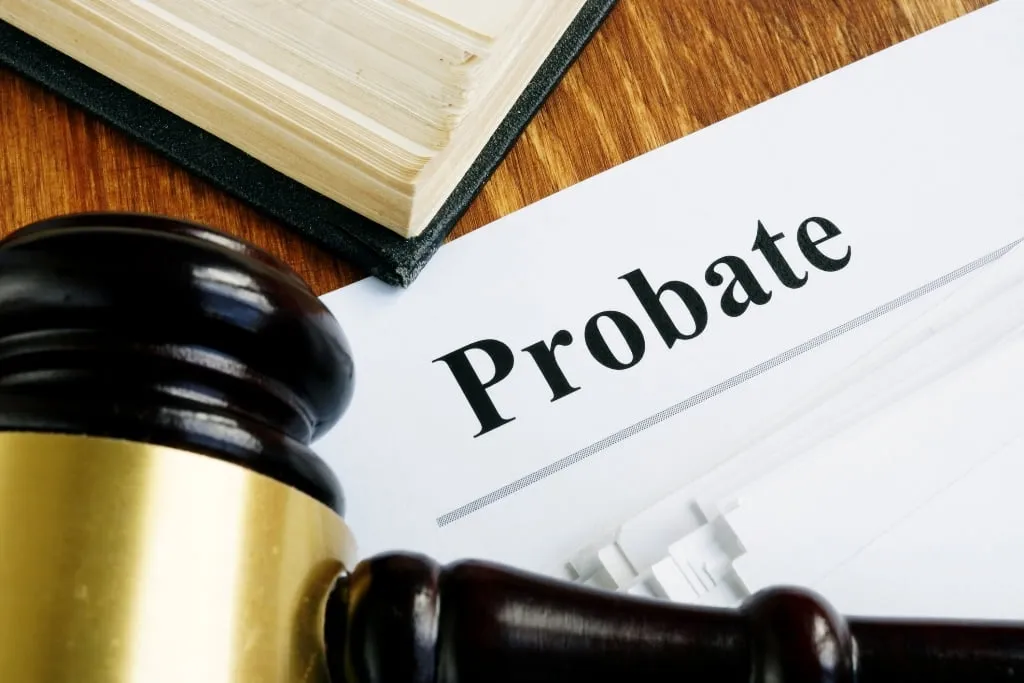

Buying probate real estate presents unique investment opportunities that savvy investors can leverage to build substantial wealth. While traditional property purchases follow straightforward processes, the world of probate real estate requires specialized knowledge and strategic approaches that many investors overlook.
How to Buy Probate Real Estate If you’re wondering how to navigate the probate process or feeling overwhelmed by its complexities, you’re not alone. Many buyers share these concerns when dealing with probate properties. This comprehensive guide will help you understand and succeed in the probate real estate market, walking you through each step of the process.
What Is Probate Real Estate?
Probate real estate refers to properties sold as part of an estate settlement after the property owner passes away. This legal process transfers ownership from the deceased person’s estate to beneficiaries or involves selling the property to settle outstanding debts and estate obligations.
The probate process can be complex, often requiring court proceedings and adherence to specific legal requirements that vary by state and local jurisdiction. When you buy probate real estate, you’re essentially purchasing property from an estate that’s being administered through the court system.

Understanding the Legal Framework
The probate court oversees the entire process to ensure fair distribution of assets and proper debt settlement. How to Buy Probate Real Estate This oversight creates additional steps and requirements that don’t exist in traditional real estate transactions. Properties may need court approval before sale completion, and specific disclosure requirements must be met.
Why Consider Buying Probate Properties?
Key Benefits of Probate Real Estate Investment
Below-Market Pricing: Probate properties often sell at significant discounts of 10-30% below current market rates. How to Buy Probate Real Estate Estates typically prioritize quick sales over maximum profit, creating opportunities for investors to acquire valuable assets at reduced prices.
Exclusive Opportunities: These properties frequently include homes in desirable neighborhoods that aren’t available through traditional real estate channels. Many probate properties have been family homes for decades in established communities.
Less Competition: Fewer buyers understand how to buy probate real estate, reducing bidding competition compared to traditional listings. How to Buy Probate Real Estate This knowledge gap creates advantages for informed investors.
Motivated Sellers: Estate administrators often need to sell quickly to settle debts, pay taxes, or distribute assets among beneficiaries. This urgency can work in buyers’ favor during negotiations.
Potential Risks to Consider
Property Condition Issues: Probate homes may require substantial repairs or renovations, as they’re often sold “as-is” without seller warranties or guarantees about property condition.
Legal Complexities: When you buy probate real estate, you navigate specific legal requirements and potential court oversight that can complicate transactions and extend timelines.
Extended Timeline: The probate process can take several months to complete, requiring patience from buyers who may need court approvals at various stages.
Limited Financing Options: Some lenders have restrictions on probate properties, potentially limiting financing options and requiring alternative funding strategies.
Step-by-Step Guide to Buy Probate Real Estate
Step 1: Research and Locate Probate Properties
Finding probate real estate opportunities requires targeted strategies:
Court-Ordered Auctions: Monitor local probate court schedules for upcoming auctions. How to Buy Probate Real Estate These public sales often feature properties at competitive prices but require immediate payment capabilities.
Specialized Probate Property Listings: Many Multiple Listing Services (MLS) have specific categories for probate properties. Work with agents who understand how to search these specialized listings effectively.
Experienced Probate Realtors: Partner with real estate professionals who specialize in probate transactions. They often have access to off-market opportunities and understand the unique requirements.
Public Records and Court Filings: Review probate court filings regularly to identify properties entering the probate process before they reach the open market.
Step 2: Conduct Thorough Due Diligence
Comprehensive Property Inspection: Hire qualified inspectors to assess the property’s condition thoroughly. Probate properties often have deferred maintenance issues that require immediate attention and significant investment.
Title Verification: Ensure clear title and resolve any legal complications before proceeding. Probate properties may have complex ownership structures or outstanding liens that need resolution.
Market Analysis: Research comparable sales extensively to determine fair market value. Consider both current market conditions and the property’s potential value after necessary improvements.
Financial Assessment: Calculate total investment costs, including purchase price, repairs, carrying costs, and potential legal fees to ensure profitability.
Step 3: Prepare and Submit Your Strategic Offer
When you buy probate real estate, your offer strategy requires careful consideration:
Condition-Based Pricing: Factor the property’s current condition into your offer price. Account for necessary repairs, updates, and potential surprises discovered during renovations.
Comparable Sales Research: Analyze recent sales of similar properties in the area, both probate and traditional sales, to establish realistic pricing benchmarks.
Estate Representative Negotiations: Prepare for negotiations with estate administrators, who may have different priorities than traditional sellers. They often value certainty and speed over maximum price.
Strategic Contingencies: Include appropriate contingencies for inspections, financing, and potential title issues while maintaining offer attractiveness.
Advanced Strategies to Buy Probate Real Estate Successfully
Working with Professional Networks
Building Relationships with Estate Attorneys: Estate planning and probate attorneys often know about properties before they hit the market. Developing relationships with these professionals can provide early access to opportunities.
Connecting with Financial Advisors: Financial professionals working with grieving families often provide guidance on property sales. They can refer clients who need to sell inherited properties quickly.
Networking with Other Real Estate Professionals: Property managers, contractors, and other real estate investors often encounter probate opportunities through their business activities.
Financing Options for Probate Properties
Cash Purchases: Offer significant advantages in probate transactions, including faster closings and increased negotiating power. Cash offers often receive preference from estate administrators.
Hard Money Lending: Short-term financing options can provide quick funding for probate purchases, especially when traditional lending faces delays or restrictions.
Private Money Lenders: Individual investors or private lending groups may offer flexible terms for probate real estate investments, particularly for experienced buyers.
Partnership Structures: Consider partnering with other investors to pool resources and expertise for larger probate real estate opportunities.
Step 4: Navigate Complex Probate Financing
Securing appropriate financing when you buy probate real estate requires understanding lender requirements:
Specialized Lender Experience: Work with lenders who regularly handle probate transactions and understand the unique documentation and timeline requirements.
Extended Approval Timelines: Allow additional time for underwriting processes, as lenders may require extra documentation and court-related paperwork.
Competitive Cash Advantages: Consider cash offers when possible, as they eliminate financing contingencies and appeal to estate administrators seeking certainty.
Alternative Financing Solutions: Explore creative financing options, including seller financing arrangements with estates when traditional lending proves challenging.
Step 5: Master the Probate Closing Process
Court Approval Requirements: Some probate sales require court confirmation, adding steps and timeline extensions to the closing process. Understand these requirements early in the transaction.
Specialized Documentation: Probate transactions involve unique legal documents and disclosures that don’t appear in traditional real estate sales.
Professional Team Assembly: Work with experienced professionals throughout the transaction, including probate attorneys, specialized real estate agents, and knowledgeable title companies.
Timeline Management: Allow extra time for court approvals, document preparation, and potential complications that can arise during probate transactions.
Working with Probate Real Estate Professionals
Successfully navigating the probate real estate market requires specialized knowledge and experience. In competitive markets like Los Angeles, a qualified probate realtor in Los Angeles provides invaluable expertise throughout the entire process.
Why Choose Experienced Probate Specialists
Legal Knowledge Depth: Understanding court proceedings, required disclosures, and probate-specific listing agreements ensures smooth transactions and legal compliance.
Negotiation Expertise: Experienced handling of complex probate sales, including working with multiple beneficiaries and estate administrators with varying priorities.
Market Intelligence: In-depth knowledge of local probate real estate markets, including pricing trends, competition levels, and optimal timing strategies.
Process Efficiency: Streamlined procedures that reduce stress and increase efficiency, making the complex process more manageable for all parties involved.
Finding Quality Probate Homes for Sale
Locating the perfect probate home for sale requires understanding the unique aspects of probate transactions:
Property Identification Systems: Develop systematic approaches to identify available probate properties through multiple channels, including court records, MLS searches, and professional networks.
Court Requirement Navigation: Understand specific court requirements and timelines that vary by jurisdiction, ensuring compliance throughout the purchase process.
Condition Assessment Protocols: Evaluate property conditions and values accurately, accounting for deferred maintenance and potential hidden issues common in probate properties.
Legal Complexity Management: Navigate complex legal requirements with professional guidance, ensuring all documentation and procedures meet probate court standards.
Transform Probate Real Estate Into Profitable Investments
With proper guidance and expertise, learning to buy probate real estate can become a highly rewarding investment strategy. The combination of below-market pricing opportunities and unique property access makes probate real estate an attractive option for savvy investors.
Investment Strategy Development
Portfolio Diversification: Incorporate probate properties into broader real estate investment portfolios to take advantage of unique pricing opportunities and reduced competition.
Risk Management: Develop systematic approaches to assess and mitigate risks associated with probate property investments, including condition issues and legal complexities.
Market Timing: Understand probate market cycles and timing considerations that can affect property availability and pricing opportunities.
Ready to Explore Probate Investment Opportunities?
Whether you’re a first-time probate buyer or an experienced investor looking to expand your knowledge, having professional guidance ensures informed decision-making throughout the process. The specialized nature of probate real estate requires expertise that goes beyond traditional real estate transactions.
Successful probate real estate investment combines market knowledge, legal understanding, and strategic execution. By following this comprehensive guide and working with experienced professionals, you can navigate the probate real estate market confidently and build substantial wealth through these unique investment opportunities.
Ready to start your probate real estate journey? The key to success lies in education, preparation, and working with professionals who understand the intricacies of probate transactions. With the right approach and guidance, you can transform probate real estate opportunities into profitable investments that enhance your portfolio and financial future.
Contact experienced probate real estate professionals today to explore your options in this specialized market and discover how you can successfully buy probate real estate at the right price with the right guidance.

